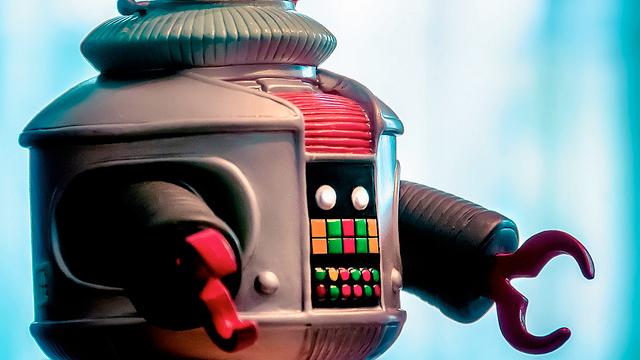Will the next David Foster Wallace be a robot?
An algorithm could have written this. Well, maybe not this exact article; that still might be a couple years off. But computers are producing journalism.
Forbes already outsources some of its earnings stories to bots, and the Associated Press has announced that computers will cover a few college sports games.
Computer reporting is simply a matter of teaching the program what data is interesting, and how to present it to the reader, explains Kris Hammond, chief scientist at Narrative Science.
“In much the same way a sportswriter can teach another writer how to become a sportswriter, or a financial writer can teach another writer how to become a financial writer, we can teach the machine to look for the kinds of patterns that are important, figure out what the audience needs to hear, and then turn that into impactful language," he says.
Alright, so computers can write straightforward, data-driven stories. What about creative works? Novels, poems, stories? That’s an entirely different picture.
The man on the cutting edge of that picture is Darius Kazemi, an artist and programmer behind such works as You Must Be, Two Headlines, and Random Shopper. Inspired by National Novel Writing Month, he created NaNoGenMo, a project where people wrote code that would generate a 50,000 word novel.
Submissions included Alice’s Adventures in the Whale, a version of Alice’s Adventures in Wonderland featuring dialogue from Moby Dick. The Cheshire Cat talked a lot about whale guts. There was also I Got an Alligator for a Pet, a compilation of verses from Pentametron, a Twitter bot that finds random people’s tweets that happen to be in iambic pentameter, and collects them in sonnet form. And finally, there was The Seeker, which is about a computer learning to be human by reading WikiHow.
Here’s Kazemi reading excerpts from three of his favorites:
These novels aren’t exactly the most straightforward or readable things in the world. Kazemi views algorithms as a tool to create unexpected art. “The novels can come across as very experimental. But people who enjoy experimental, avant-garde fiction written by humans, will probably find something to enjoy in this literature written by computers.”
He compares the work being done today to William Burroughs’ cut-up poems of the 1950s. Instead of newspapers and magazines, bots comb Twitter and websites to create their mash-ups and juxtapositions.
Having some bot go through Twitter to create sonnets is different than HAL 9000 writing original poetry. And Kazemi thinks that computers won’t be replacing George R. R. Martin anytime soon. “I think you’re going to have people that are fans of computer-generated novels and like it for what it specifically does. But it’s never going to be exactly the same aesthetically as something that was made by a person.”
However, at least according to Hammond, there’s nothing intrinsically special about human creativity or intelligence. “The reality is that when you look at creativity, at intelligence, all of these things that seem to differentiate us from animals, at the very bottom of those processes, there can’t just be a box that you can’t unpack. It’s something that can be taught, can be learned, can be trained.” Hammond believes computers could write anything; it’s just a matter of teaching them the right way.
So, in a few years, a computer might be able to write an article like your humble reporter. Or a novel like John Grisham. Or a screenplay like Quentin Tarantino. Though hopefully they won’t be able to pick the perfect embeded video to end a piece. Here’s Rutger Hauer talking about what separates man from machines:
oembed://https%3A//www.youtube.com/watch%3Fv%3DNoAzpa1x7jU
The story is cross-posted at Innovation Hub.
